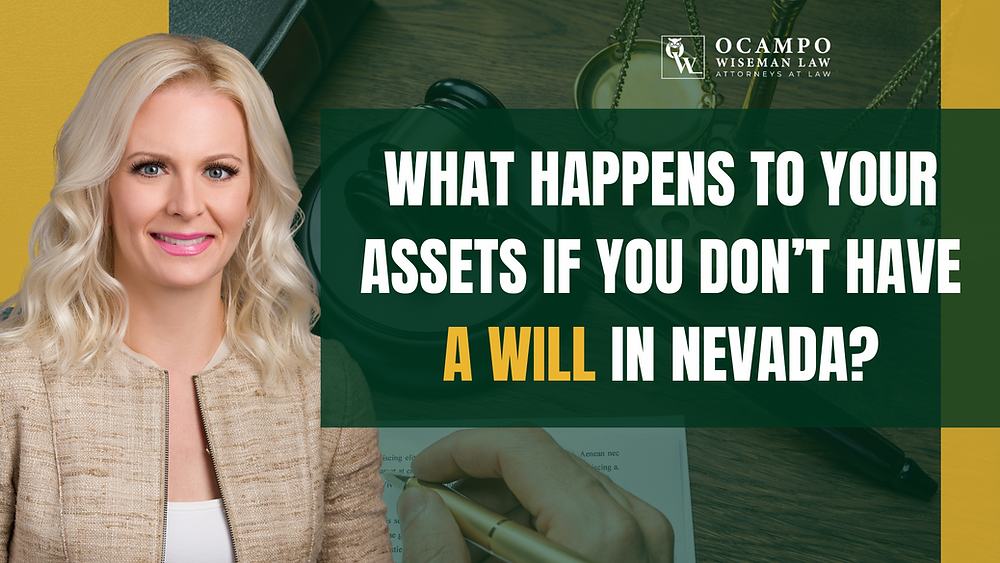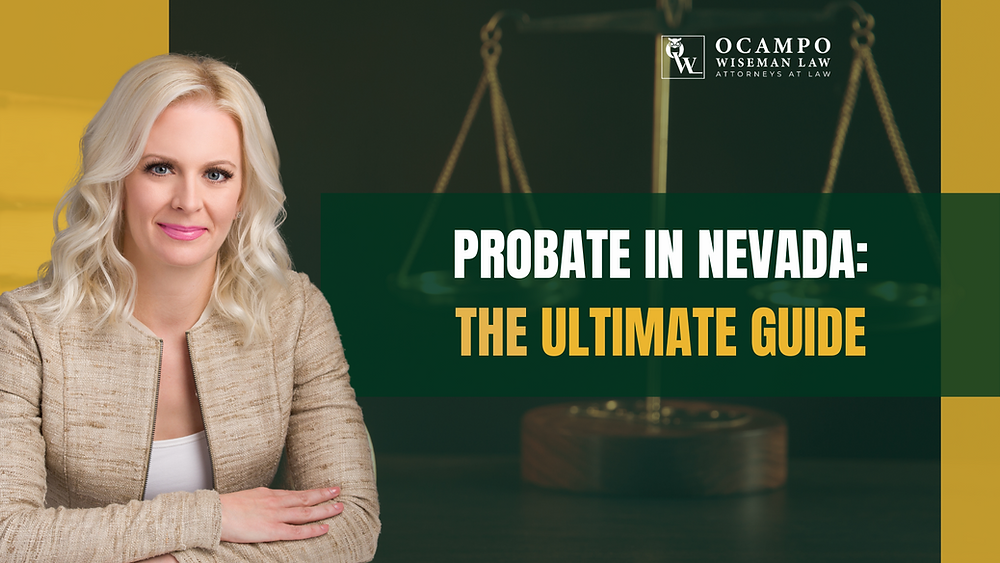What Happens to Your Assets Without a Will in Nevada: Estate Planning Explained Video: The Truth About Your Assets in Nevada | No Will = Big Problems?
Sarah Ocampo

Understanding what happens to your assets in Nevada without a will is essential for securing your family's future, even if estate preparation isn't the first thing on your to-do list. In Nevada, the lack of a will can make things more difficult for bereaved families.
Let's discuss what happens to your possessions in Nevada if you die without leaving a will and, more importantly, what you can do to prevent this from happening.
Understanding Intestate Succession in Nevada
When you pass away without a will in Nevada, your assets don't automatically go to who you think they should. Instead, the state's intestate succession laws determine who inherits your property. These laws are Nevada's "backup plan" for distributing your assets when you haven't left specific instructions.
Here's what happens to your assets under Nevada law:
If you're married with no children, your spouse inherits everything. This might seem straightforward, but it becomes more complex in other scenarios. For instance, the distribution changes significantly if you're married with children. Your spouse receives all community property, but any separate property gets split—50% goes to your spouse, and 50% goes to your children.
Assets obtained during marriage are usually considered community property, however assets you obtained before marriage or any assets you received as a gift or inheritance are considered separate property. When deciding how to divide your assets, this distinction becomes quite important.
Protecting Your Family's Future
Having the state decide who gets your assets might not align with your wishes. For example, leave specific items to certain family members or ensure your children receive their inheritance at an appropriate age. Without a will, you lose control over these important decisions.
A Better Approach: Creating an Estate Plan
Instead of leaving these crucial decisions to Nevada state law, you have better options. Creating a will is essential, allowing you to specify exactly who receives your assets and under what conditions. However, a trust might be an even better solution for many Nevada residents.
Having a trust has a number of benefits:
- Steer clear of the probate process completely to save money and time.
- Protect your family's privacy
- Increase the amount of control you have over the distribution of your possessions.
- Possibly lower estate taxes
- Preserve assets for young children or members of the family who have special needs.
Taking Action: Next Steps
The best time to start planning is now. Take inventory of your assets and consider how you'd like them distributed. Consider your immediate family's needs and your long-term legacy goals.
If you've been putting off estate planning, you're not alone. Many people delay this important task, but the consequences of not having a plan can be significant for your loved ones. The good news is that creating an estate plan doesn't have to be overwhelming.
Protecting Your Legacy
Remember, estate planning isn't just about distributing assets—it's about protecting your family's future and ensuring your wishes are fulfilled. Whether you create a will or establish a trust, having a plan in place gives you and your family peace of mind.
Ready to Protect Your Assets?
Don't leave your family's future to chance. Take the first step by scheduling a complimentary 15-minute phone consultation.
During this call, we can discuss your situation and determine the best approach for protecting your assets and loved ones.
You can schedule your consultation by:
- Booking directly through our website
- Calling our office
- Sending us an email to schedule at your convenience
The most important thing is to take action now while you can make these crucial decisions for yourself and your family.




